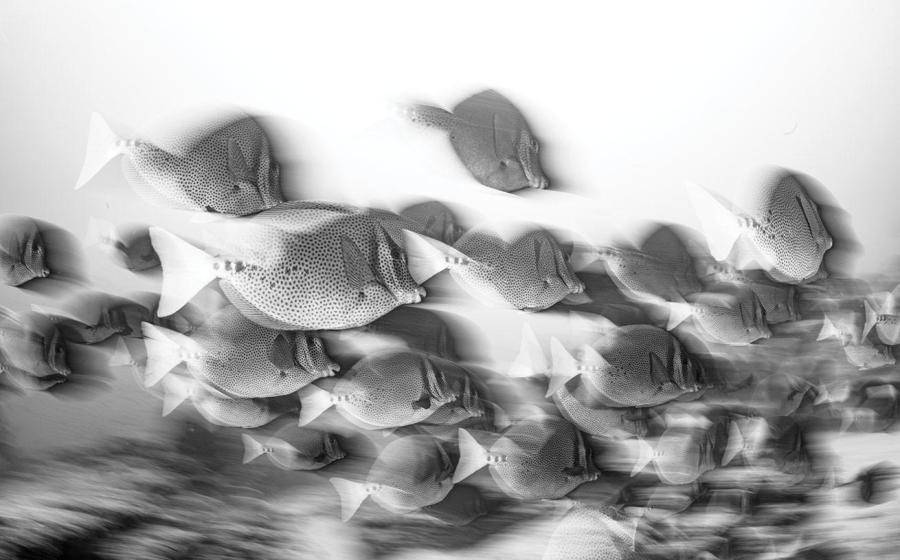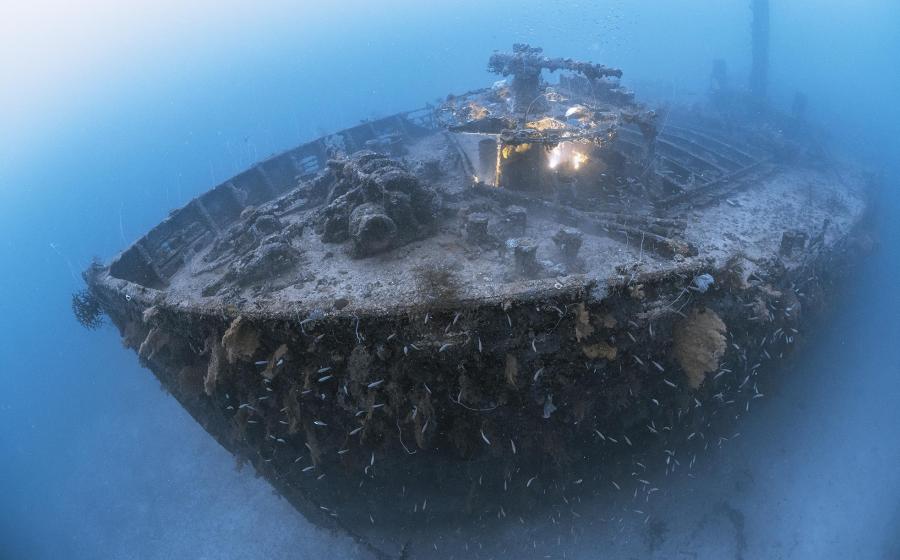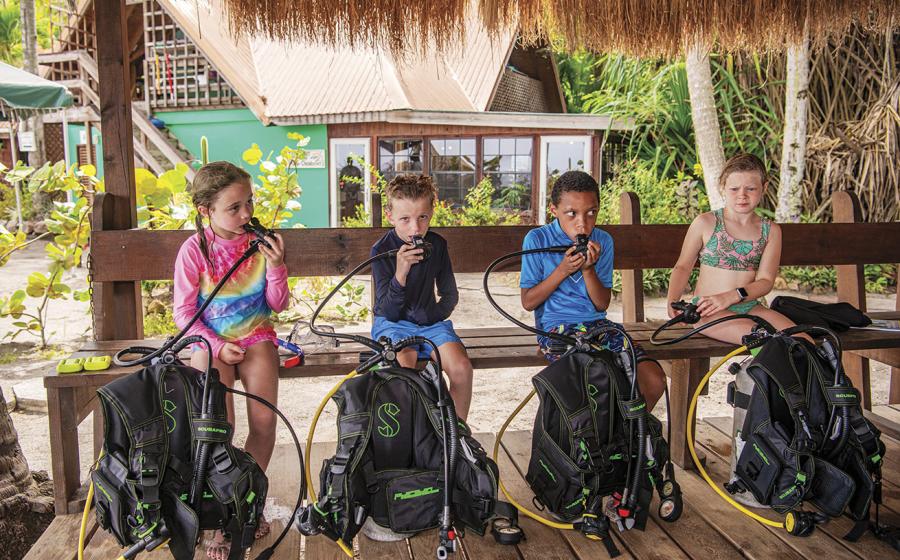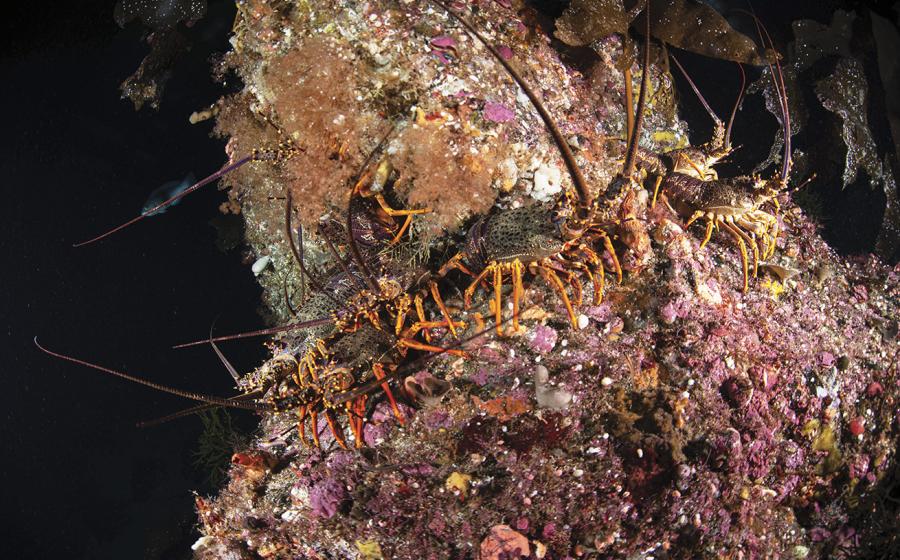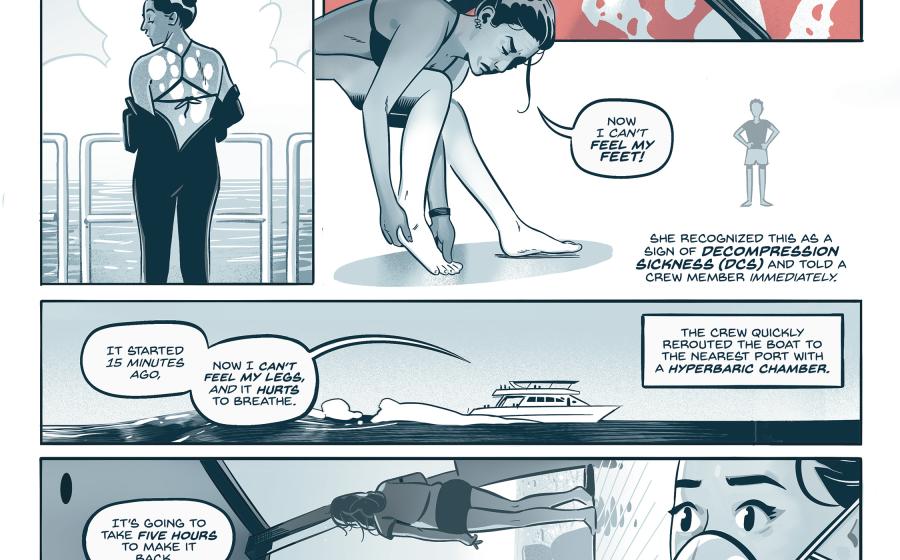Ask an Expert: Should New Divers Carry Cameras and Other Extras?

There is no scuba police. No one is going to arrest a diver for doing something wrong — at least not underwater. But in diving, there are rules and guide- lines intended to keep divers safe: Never hold your breath, ascend slowly, plan your dive, make safety stops, etc. But should there be a rule to regulate what new divers can carry before they’ve mastered buoyancy control (a camera or speargun, for example)?
Diving involves several complex actions in a hostile environment. Anything that distracts the novice diver from those actions should probably be avoided. The issue is task loading: A camera adds one more thing they will have to focus on. Even the most experienced underwater photographer can get so wrapped up in “the shot” that monitoring air supply falls by the wayside. (See half of the “Lessons for Life” columns.)
On the other hand, some divers feel that photography is the point of being in the water. If those divers couldn’t take photos, they probably wouldn’t dive at all. But is there a compromise?
CARRYING A CAMERA IS A GOOD THING
“As an instructor with more than 20 years’ experience, I love the digital-camera revolution and how all divers have access to capturing memories. All of my young certified divers want to be able to take photos of themselves and one another — as well as what they see — underwater so they can share with their friends,” said Annie Crawley, a PADI Master Scuba Diver Trainer and noted underwater photographer. “I encourage them to use cameras in the pool first before taking them to the open water to see how this changes their buoyancy and how they interact with their buddy.”
“If I were not ‘allowed’ to have a camera when I was a new diver, I would not be a diver today,” said Jill Synowiec, co-owner of Divers Incorporated in Ann Arbor, Michigan. “Photography is my passion, and I needed the distraction from the head games I played with myself. The camera, for me, was something to focus on (ha!).”
NO TASK LOADING WITHOUT EXPERIENCE
“Newbies and their expensive toys are soon parted. If something distracts you from your air consumption, your buoyancy or your orientation; it’s a liability,” said Carrie Caignet, a former SSI dive instructor. Caignet currently serves as a divemaster on board a charter boat that allows spearfshing, and advises on spearfshing best practices and techniques.
PADI course director CJ Goodrich was definitive about when divers should be allowed to carry cameras and other gadgets underwater: “Not until they have shown mastery and continued vigilance with regard to neutral buoyancy and awareness of their surroundings.”
Adam Cassidy’s expertise comes from leading groups of teen divers in the SPLASH program. “I don’t think newbie divers are ready for underwater photography, and they’re definitely not ready for scooters or spearfshing. It is very easy to start chasing a fish and lose track of your depth, even without a camera or speargun. New divers should spend their time acclimating to diving in general, and dive with buddies who are experienced,” he said.
CONCLUSION
Even the most experienced, well-trained divers can get distracted and fail to monitor their breathing-gas supply or their depth. Some newbie divers should definitely focus on the task of staying alive and exploring the underwater world. Others are right at home in the water and can easily take on new challenges, so making a “rule” is probably not practical.
There is one more thing to consider: As a diver, you aren’t just looking out for yourself. If you do get distracted and do something stupid, you can easily put your buddy’s life at risk as well as your own. Cassidy summarized by saying, “I don’t want my buddy task loading, getting into trouble, and then possibly injuring both of us.”
More Expert Advice:
Should You Spearfish on Scuba? | Solo Diving: OK or No Way? | Do You Need to Reveal Your Meds?
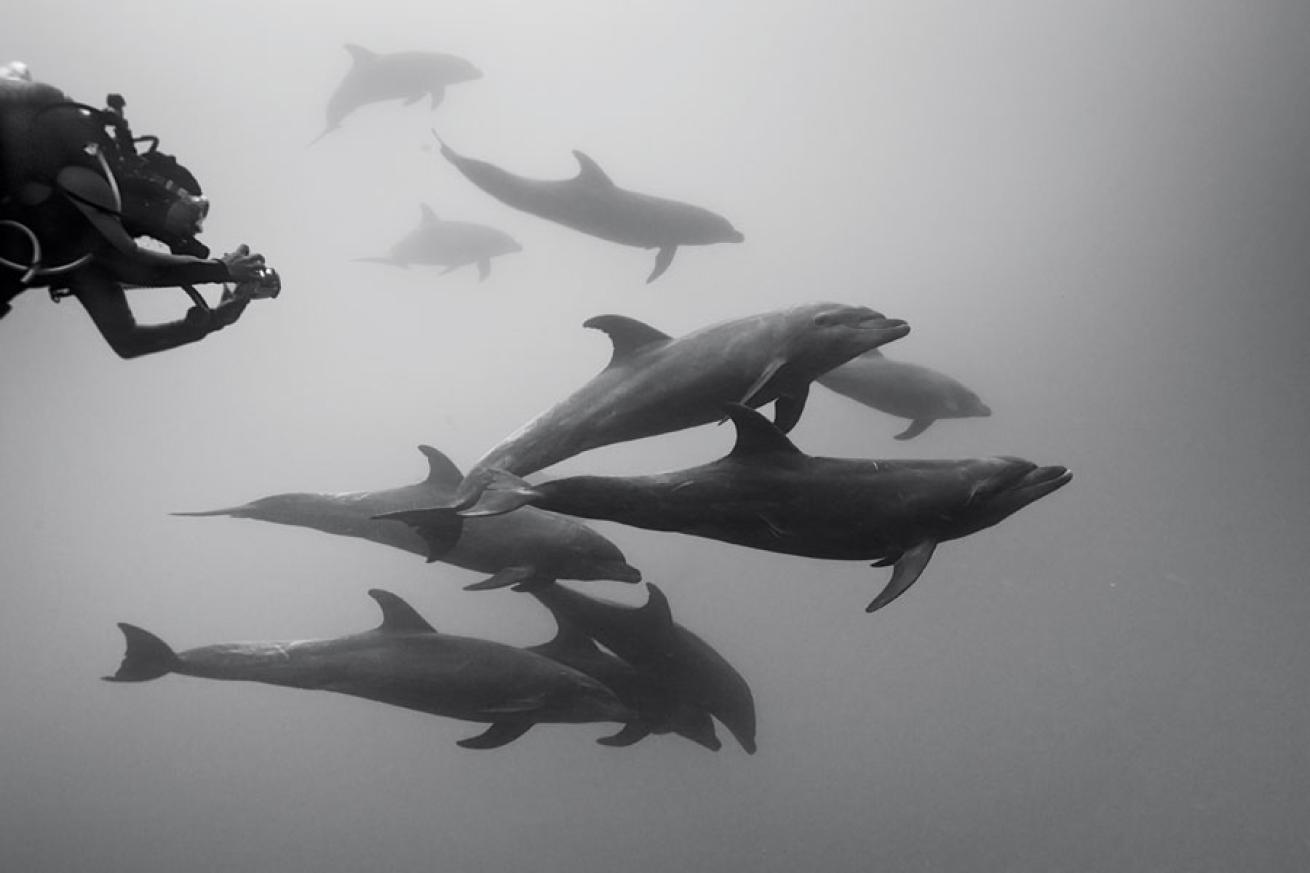
Noel Hendrickson/Getty ImagesShould New Divers Carry Cameras?
There is no scuba police. No one is going to arrest a diver for doing something wrong — at least not underwater. But in diving, there are rules and guidelines intended to keep divers safe: Never hold your breath, ascend slowly, plan your dive, make safety stops, etc. But should there be a rule to regulate what new divers can carry before they’ve mastered buoyancy control (a camera or speargun, for example)?
Diving involves several complex actions in a hostile environment. Anything that distracts the novice diver from those actions should probably be avoided. The issue is task loading: A camera adds one more thing they will have to focus on. Even the most experienced underwater photographer can get so wrapped up in “the shot” that monitoring air supply falls by the wayside. (See half of the “Lessons for Life” columns.)
On the other hand, some divers feel that photography is the point of being in the water. If those divers couldn’t take photos, they probably wouldn’t dive at all. But is there a compromise?
CARRYING A CAMERA IS A GOOD THING
“As an instructor with more than 20 years’ experience, I love the digital-camera revolution and how all divers have access to capturing memories. All of my young certified divers want to be able to take photos of themselves and one another — as well as what they see — underwater so they can share with their friends,” said Annie Crawley, a PADI Master Scuba Diver Trainer and noted underwater photographer. “I encourage them to use cameras in the pool first before taking them to the open water to see how this changes their buoyancy and how they interact with their buddy.”
“If I were not ‘allowed’ to have a camera when I was a new diver, I would not be a diver today,” said Jill Synowiec, of Divers Incorporated in Ann Arbor, Michigan. “Photography is my passion, and I needed the distraction from the head games I played with myself. The camera, for me, was something to focus on (ha!).”
NO TASK LOADING WITHOUT EXPERIENCE
“Newbies and their expensive toys are soon parted. If something distracts you from your air consumption, your buoyancy or your orientation; it’s a liability,” said Carrie Caignet, a former SSI dive instructor. Caignet currently serves as a divemaster on board a charter boat that allows spearfshing, and advises on spearfshing best practices and techniques.
PADI course director CJ Goodrich was definitive about when divers should be allowed to carry cameras and other gadgets underwater: “Not until they have shown mastery and continued vigilance with regard to neutral buoyancy and awareness of their surroundings.”
Adam Cassidy’s expertise comes from leading groups of teen divers in the SPLASH program. “I don’t think newbie divers are ready for underwater photography, and they’re definitely not ready for scooters or spearfshing. It is very easy to start chasing a fish and lose track of your depth, even without a camera or speargun. New divers should spend their time acclimating to diving in general, and dive with buddies who are experienced,” he said.
CONCLUSION
Even the most experienced, well-trained divers can get distracted and fail to monitor their breathing-gas supply or their depth. Some newbie divers should definitely focus on the task of staying alive and exploring the underwater world. Others are right at home in the water and can easily take on new challenges, so making a “rule” is probably not practical.
There is one more thing to consider: As a diver, you aren’t just looking out for yourself. If you do get distracted and do something stupid, you can easily put your buddy’s life at risk as well as your own. Cassidy summarized by saying, “I don’t want my buddy task loading, getting into trouble, and then possibly injuring both of us.”
More Expert Advice:
Should You Spearfish on Scuba? | Solo Diving: OK or No Way? | Do You Need to Reveal Your Meds?





